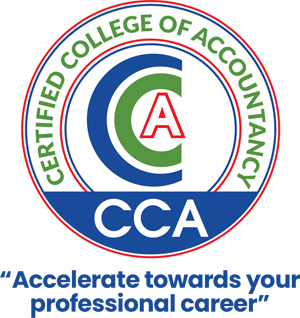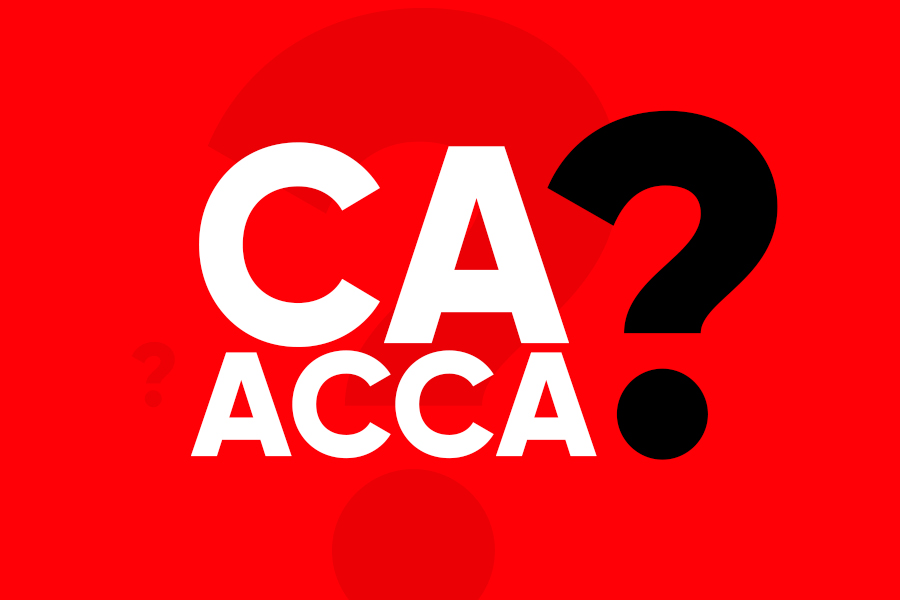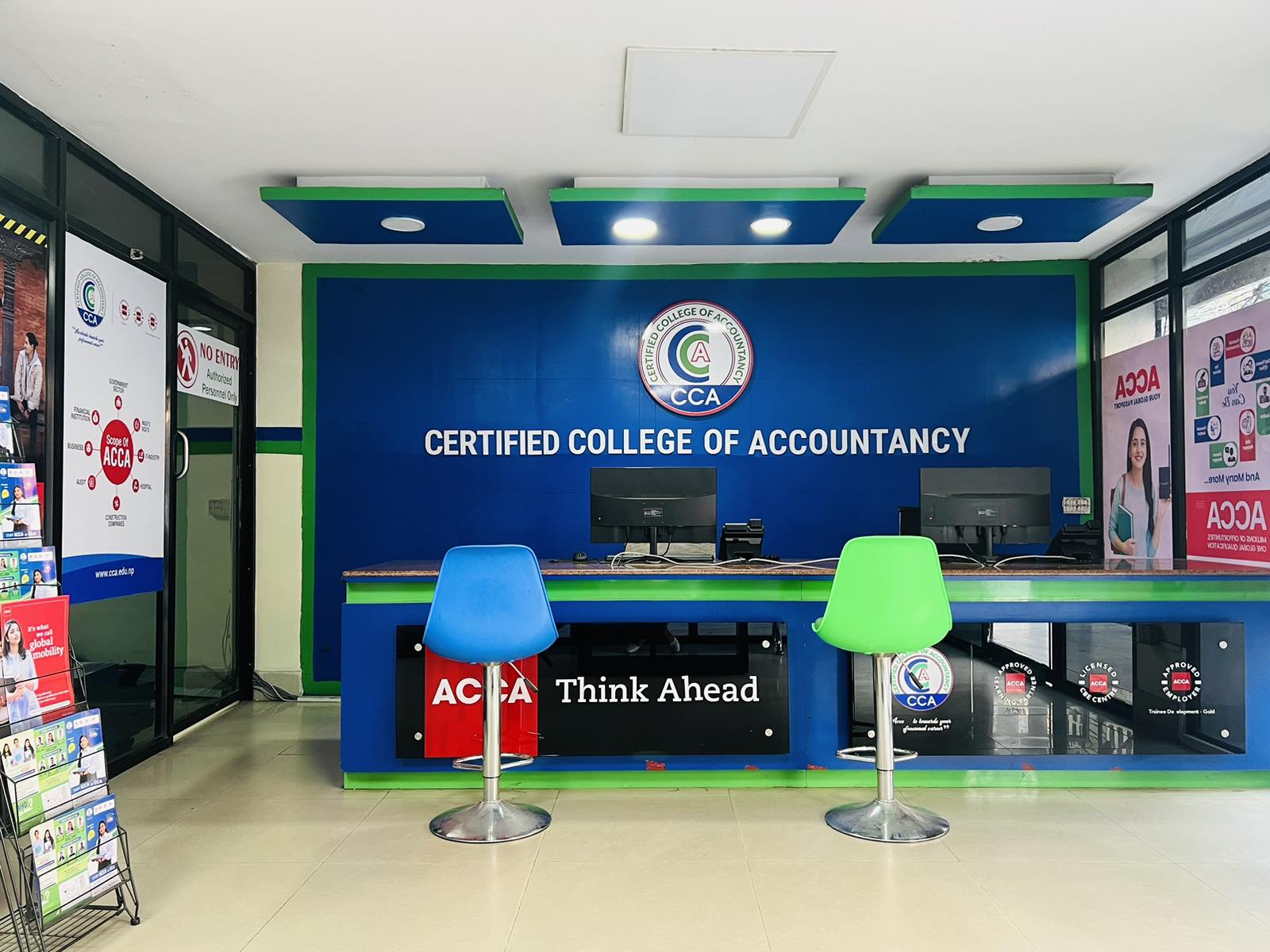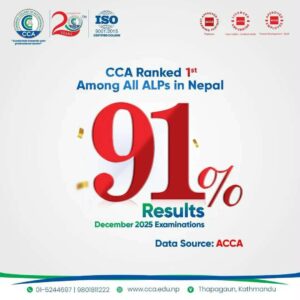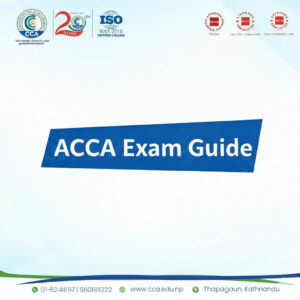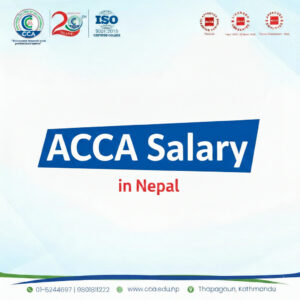If you’re aiming to build a career in accounting, you’ve probably come across two of the most prominent qualifications in Nepal; ACCA and CA. Deciding between them isn’t always easy. Both paths lead to excellent opportunities, but the journey, recognition, and outcomes can differ quite a bit. Let’s break it down so you can make a confident decision based on your goals, budget, and lifestyle.
Introduction
CA
CA, or Chartered Accountancy, in Nepal is governed by the Institute of Chartered Accountants of Nepal (ICAN). It follows a three-level progression; CAP I, CAP II, and CAP III, and includes a mandatory three-year articleship. It’s the go-to choice for those planning to build their accounting career within Nepal’s legal and financial framework.
ACCA
ACCA, or the Association of Chartered Certified Accountants, is a globally recognized qualification based in the United Kingdom. It includes 13 exams, a practical experience requirement, and an ethics module. It’s designed for people who want an internationally mobile career in accounting, finance, and business leadership.
Comparison: CA OR ACCA
1. Recognition & Career Mobility
- CA is highly respected within Nepal, especially in government, regulatory bodies, and public practice. It’s also the only qualification authorized to sign audit reports in Nepal.
- ACCA is accepted in more than 180 countries. It’s perfect if you’re looking to work abroad or in multinational companies.
2. Curriculum & Specialization
- CA focuses on Nepali laws, taxation, and audit. It provides deep technical training in the local context but with limited options for specialization.
- ACCA offers a wide-ranging curriculum based on international standards. It covers financial and management accounting, leadership, strategy, and offers specialization in the final stage.
For more information: ACCA curriculum design
3. Flexibility & Duration
- CA usually takes over 5 years. It has a fixed structure, fewer exam attempts per year, and mandatory full-time articleship.
- ACCA typically takes 3 to 4 years to complete and is highly flexible. You can study at your own pace, sit for exams four times a year, and pause if needed.
4. Cost Comparison
- CA is more affordable, with an overall cost of around NPR 400,000 to 500,000. Study materials and exam fees are lower and locally accessible.
- ACCA is more expensive, with total costs ranging between NPR 6.5 Lakhs to 7 lakhs, covering tuition, exams, and registration.
5. Job Market & Living standard
- In Nepal, CA professionals often enjoy a more stable and traditionally respected living standard due to their strong local demand, established network, and higher chances of landing senior roles in government, banks, and regulatory bodies.
- ACCA professionals, on the other hand, can have a comparable or even better living standard if they work with multinational companies, Big 4 firms, or go abroad, but locally, their opportunities and pay can be more variable unless they combine it with experience and networking.
6. Exam Difficulty & Attempts
- CA exams are considered more difficult, with lower pass rates (20–35%) and limited resources. Fewer exam windows and a more traditional format increase the pressure.
- ACCA exams are challenging but manageable, with pass rates around 30–45%. Students benefit from multiple exam sessions and computer-based testing.
7. Support & Resources
- CA offers localized resources through ICAN-recognized coaching centers. The focus is heavily rooted in Nepal’s legal and tax systems.
- ACCA has global study resources, online platforms, and local support through Approved Learning Partners such as Certified College of Accountancy (CCA).
So, Which One Should You Choose?
Choose CA if:
- You’re focused on building a strong career in Nepal.
- You want to specialize in local taxation, auditing, and compliance.
- You prefer a structured training path with fixed timelines.
- You’re working with a tighter budget for education.
Choose ACCA if:
- You want a global career or plan to work in multinational companies.
- You need flexibility to study while working or managing other commitments.
- You’re interested in broader roles such as financial strategy, consulting, or leadership.
- You want to explore new areas like sustainability reporting, digital finance, or business analytics.
Why Not Both?
Some students pursue both ACCA and CA to gain the best of both worlds. You can start with ACCA to benefit from flexibility and global exposure, and then go for CA to deepen your understanding of Nepal’s regulations. Some ACCA papers may even count toward CA exemptions, saving you time and effort.
Accounting in 2025: What’s Changing?
- Companies in Nepal are becoming more global; creating demand for internationally qualified accountants like ACCA members.
- Digital tools and remote work are transforming the finance field; ACCA is already integrating topics like artificial intelligence and analytics.
- The domestic market still values professionals with deep local expertise; making CA more relevant than ever.
- Employers are increasingly looking for professionals with both global insight and local knowledge; making dual qualifications very attractive.
ACCA Syllabus Summary
Applied Knowledge Level
- Business and Technology (BT)
- Management Accounting (MA)
- Financial Accounting (FA)
Format: 2-hour computer-based exams (on-demand)
Applied Skills Level
- Corporate and Business Law (LW) – Nepal variant available
- Performance Management (PM)
- Taxation (TX) – Nepal variant available
- Financial Reporting (FR)
- Audit and Assurance (AA)
- Financial Management (FM)
Format: 3-hour exams, held four times per year
Strategic Professional Level
- Essentials: Strategic Business Leader (SBL), Strategic Business Reporting (SBR)
- Optional (choose two): Advanced Financial Management (AFM), Advanced Performance Management (APM), Advanced Taxation (ATX), Advanced Audit and Assurance (AAA)
Other Requirements:
- Ethics and Professional Skills Module
- 36 months of relevant practical experience
Exemptions for Nepali Students
If you’ve completed degrees like BBS, BBA, B.Com, MBS, or MBA or passed CAP I, you may qualify for exemptions in the Applied Knowledge and Applied Skills levels of ACCA.
To apply, submit certified academic transcripts and pay the exemption fees (around £89 per paper).
Studying ACCA in Nepal
You can study ACCA through:
